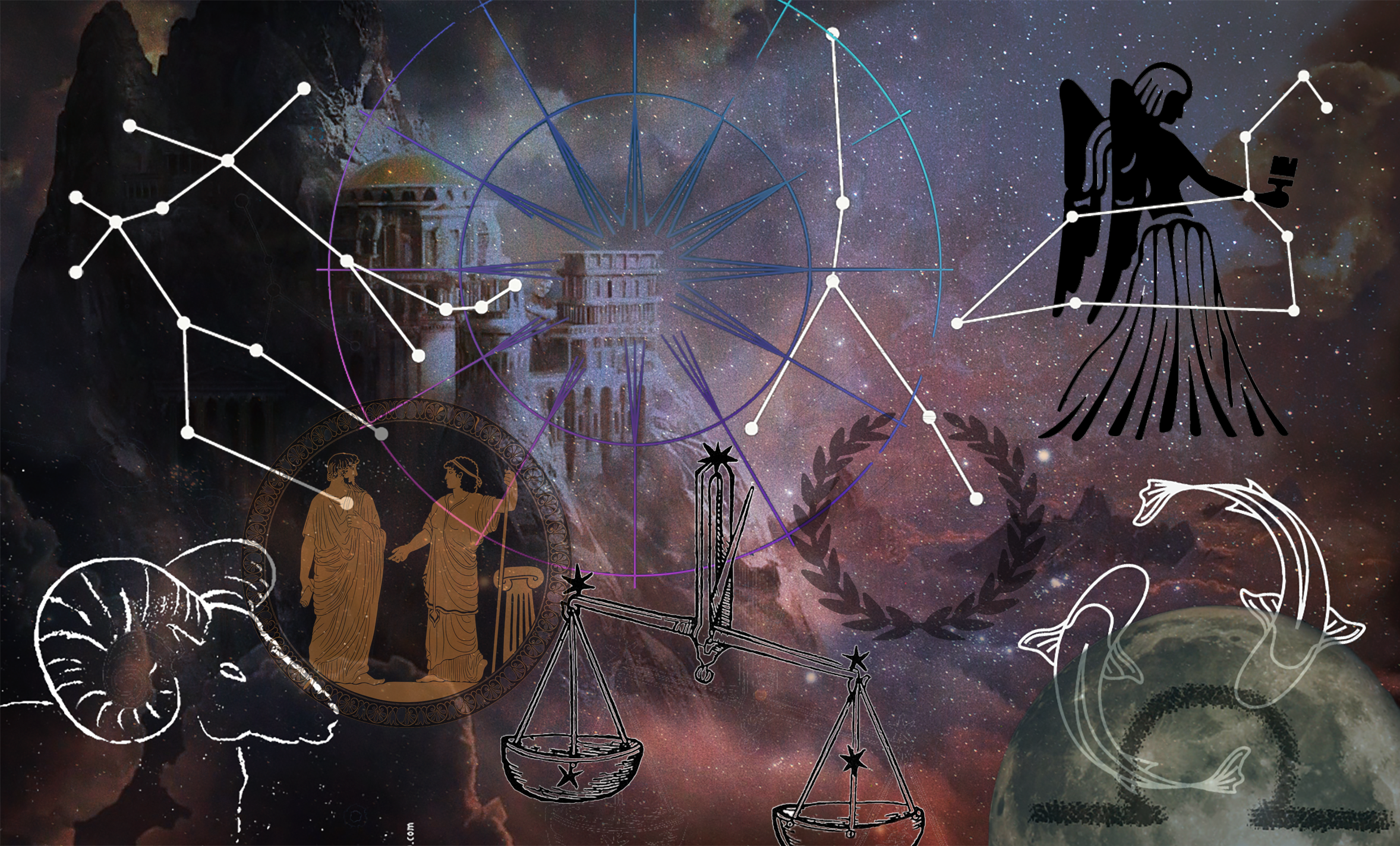Opinion | What your astrological chart really says about you
Astrological placements can tell a lot about a person, but not in the way you may think. Photo collage by DANIEL PEARSON, Photo Editor
I’m a Scorpio. A quick Google search will tell you I’m possessive, manipulative, power-hungry and consumed by the fundamental urge to understand things.
My Libra ascendant and Cancer moon soften me up around the edges, though some may argue the latter makes me an even deeper well of unpredictable, unquellable emotion. Ouch.
A few of my inner planets fall in Earth signs — a Virgo Venus and a Capricorn Mars — meaning I approach love and war with my feet rooted firmly in pragmatism.
Megan J. Miller, Opinions Editor
Does that make Earth signs boring? Maybe.
But the bottom line is that I’ve spent a lot of time looking to space to understand myself.
Though I haven’t delved far enough into astrology to understand the aspects and ratios of my placements, sites and apps such as Astro-Charts and CoStar allow users to plot their charts and understand the basic meanings behind their planets and houses, giving even casual participants such as myself a glimpse into the language of the stars.
Astronomical observations were recorded in Mesopotamia as early as 3,000 BC, establishing a foundation from which the Babylonians would derive the concept of the zodiac. India had its own astrological system perhaps as early as 1,000 BC, which, with Hellenistic Greek influence, became the modern zodiac system we know today.
The moon ushers our ocean tides, and our planet’s magnetic field guides flocks of migrating birds. Therefore, I don’t find it particularly strange that planetary movements could describe our behavior, too.
Notice I said “describe” and not “influence.” The stars don’t actually do anything. The planets and their movements act as mirrors, rather than pulleys, reflecting back our reality on Earth but never tugging it in one way or another.
In the same way, the enneagram or Myers–Briggs Type Indicator personality tests don’t make you who you are; instead, they describe the qualities you already have. This distinction in perspective, though seemingly nuanced, is of vast importance, because astrological placements do not create a person’s nature. They reveal it.
The “commercialization” of astrology in recent years has also created a range of problems. I refuse to call myself an astrologer — even a novice one — because a true astrological reading is much more complex than the brief overview provided by CoStar.
Listen, I get it. People often know their sun sign because it’s the most readily available — all you need is your birthday.
But I’ve noticed many people look up their sun signs and think that’s all they need to know to understand their personality, ignoring the myriad of other placements, aspects, degrees and houses that are integral to understanding a natal chart.
Using words like “passionate” and “adventurous” to describe fire signs may be accurate, but it doesn’t give the full picture of someone’s astrological placements any more than those words can be used to describe someone’s physical appearance. For example, if someone’s sun is a fire sign but the rest of their chart is Earth-heavy, they might be a little less spontaneous than the fire sign stereotype.
This may be why some people don’t identify with their placements. Someone with a sun in a water sign might read a website describing them as emotional and intuitive, but a stellium (three or more planets) clustered together in an air sign would likely indicate a much more detached and intellectual approach to the world.
If you’ve disregarded astrology because your sun sign has misrepresented you, I urge you to dig a little deeper using your birth time and birthplace to uncover hidden placements that may have more pull on your personality and the trajectory of your life than you think.
Though if you do that, and you still disagree with astrology — just don’t rain on anyone’s parade. Even though you may not look to the planets and stars to read your life’s trajectory, there are plenty of people who do, and who feel very deeply about it.
Why should a chart not be seen as a viable source of information in understanding that person, if someone believes in what their astrological placements say about them?
In the same way someone’s favorite book or a movie can speak volumes about what they value and how they view the world, a placement someone personally identifies with can help them to better understand themselves.
Maybe I don’t fully agree with how my Scorpio sun is portrayed. Power-hungry? Unlikely, considering my most commonly spoken phrases are apologies.
But some of the other placements – my Cancer moon, my Virgo Venus – feel right.
As sentient beings, we spent a lot of time on this planet attempting to understand ourselves. If someone says to you, “This is who I am,” don’t ignore that. It’s worth something.


